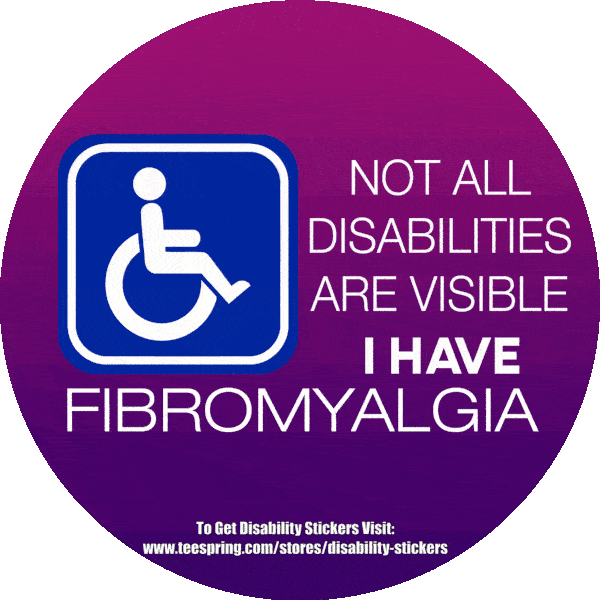Fibromyalgia Treatments that Relieve Pain and Symptoms
A Range of medications and alternative treatments are available to help relieve pain and other fibromyalgia symptoms.
Fibromyalgia is a chronic disorder that causes intense pain and tenderness throughout the body. It can lead to fatigue and tiredness. There is no known cure for fibromyalgia but a range of medications, alternative treatment, and other therapies are often effective at relieving symptoms and enhancing your overall quality of life.
Fibromyalgia Diet
Some people report that their condition is improved when they make changes in their diet. According to the National Fibromyalgia Research Association of Caffeine, refined sugar, fried foods, red meat, processed foods, and alcohol may reduce your symptoms.
Experts suggest that instead consuming foods like salmon, walnuts, lean meats, fruits, and vegetables. Pay attention to how you feel after eating different foods. Avoid any food that aggravates your symptoms. You should also drink plenty of water and you can also take vitamin supplement to make sure that you are taking enough nutrients.
Medications for fibromyalgia
Medications can reduce the intensity of the symptoms, in some people with fibromyalgia. There are 3 drugs approved by the Food and Drug Administration (FDA) to treat fibromyalgia.
>>>Cymbalta (duloxetine) and savella (milnacipran), which works by changing certain brain chemicals that control pain.
>>>Lyrica (pregabalin) which works by blocking the activity of nerve cells that play role in pain transmission.
Other fibromyalgia medications are currently in development and may receive FDA approval soon.
Doctors can also prescribe drugs off-label (for uses other than what they have approved for) to treat fibromyalgia.
Antidepressants and anti-seizure medicines are often used this way. Many people with fibromyalgia take over-the counter (OTC) or prescription pain medicines to ease their discomfort.
Injections of lidocaine into a person’s trigger points ( tender spots that are painful when pressed) may also help relieve pain.
Alternative Therapies
Some people use alternative therapies to treat fibromyalgia. These may include:
>>Acupuncture
>>Massage
>>Yoga
>>Tai chi (an ancient Chinese practice involving slow, gentle movements)
>>Mediation
>>Chiropractic treatments
>>Dietary supplements
>>Movement therapies such as Pilates and the Feldenkrais Method
>>Cognitive behavioral therapy (therapy that focuses on how thoughts and behaviors can affect symptoms.
While many people say these therapies help them personally, more studies are needed to confirm their effectiveness.
Cost of Fibromyalgia Care
Doctor’s visit and treatments for fibromyalgia can be expensive. According to the National Fibromyalgia Association, a 2007 study found that 34 percent of the people with fibromyalgia spend between 100 dollars and 1000 dollars per month out of pocket to see a healthcare professional. The largest components of fibromyalgia patient are office and emergency room visits, tests and procedures, and hospitalizations, according to a study in Annals of the Rheumatic Disease.
COPING WITH FIBROMYALGIA
Fibromyalgia is a chronic disorder, which means you will have it for a long time possibly even for the rest of your life. Certain lifestyle changes may help you tolerate this condition and improve the quality of life. These include:
GETTING ENOUGH SLEEP:
Adequate sleep can help you to fight with fatigue that frequently is associated with fibromyalgia. Try to sleep and wake up daily at the same time.
REDUCING STRESS
Try to avoid the stress or limit it in your daily routine. Save up time each day to relax.
EXERCISE:
At first exercise may b painful and hard for you, but regular physical activity can make your symptoms better. You may want to try walking, biking, swimming, or water aerobics. Your doctor can help you to develop exercise regimen.
GETTING A MASSAGE:
A research found out that people with fibromyalgia who undergo massage and mysofascial therapy for 90 minutes a week had improvements in pain after 20 weeks of treatment.
LOSING WEIGHT:
A study from the Mayo clinic found that people with a higher BMI, or body mass index, a measure of body fat based on height and weight, tended to have more fibromyalgia-related symptoms than those who weighed less.
EATING WELL:
Consume healthy, whole foods. Limit any foods that seem to worsen your symptoms. Talk to your doctor about creating a healthy meal plan.
STOP SMOKING:
Research indicates that fibromyalgia patients who smoke may experience more severe pain than nonsmokers, so they may also have more bad days than those who do not use tobacco. Some people with fibromyalgia have reported that their symptoms were reduced after adopting the lifestyle changes.
FIBROMYALGIA SUPPORT GROUPS:
Many cities around the United States have fibromyalgia groups. These groups help provide information about the condition and let you connect with other people who are dealing with the same illness. Organizations such as the American Chronic Pain Association and the National Fibromyalgia Association can help you get in touch with other people who have fibromyalgia. You are not alone, Join 28,000+ Fibro warriors in the support group “Living With Fibromyalgia and Chronic Illness”.
-Dr. M Rana, MD MBBS, FUMDC.

